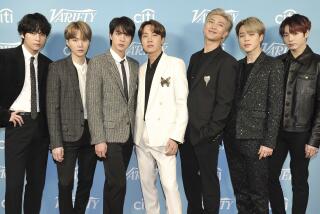Even Clinton Went by the Book
What does a president read about other presidents to help prepare for and deal with the presidency?
In Bill Clinton’s case, the answer, apparently, was everything.
Before his election and during his tenure, Clinton marched through the landmark popular presidential biographies that appeared during those times, including books by David Herbert Donald on Abraham Lincoln, David McCullough on Harry S. Truman, Willard Sterne Randall on Thomas Jefferson, and Geoffrey C. Ward on young Franklin D. Roosevelt.
But as president, Clinton also read lesser-known biographies of James Madison, Grover Cleveland, Rutherford B. Hayes and Franklin Pierce. He read several biographies of Ulysses S. Grant. He read a monograph Lincoln wrote about Zachary Taylor.
In office, Clinton did his reading late at night or on long plane flights. He follows a similar routine now, vacuuming up works about predecessors celebrated and obscure. (He recently finished a biography of Martin Van Buren written by a former Clinton speechwriter.)
Recently, Clinton spoke with The Times about his reading, how it affected his approach to the presidency and the way he thinks historians should judge presidents. On the day of the interview, he was on his way to Davos, Switzerland, for an international conference. A copy of “Lincoln’s Melancholy,” by Joshua Wolf Shenk, was in his briefcase.
* On books that helped prepare him for the presidency:
“There was one that really helped me run that I read in the 1992 campaign, Geoffrey Ward’s ‘A First-Class Temperament,’ which was a [1989] biography of [Franklin D.] Roosevelt before he took office....
“It helped me later when I was president. The one searing image I had was Roosevelt worked like hell to conquer his polio and he really thought he would regain the full use of his body. And when he finally realized he wouldn’t, he finally came back to New York and he went to work in a law firm on Wall Street. The braces [for his legs] he wore back then were very heavy and awkward, so the first day he went to work, he fell flat on his face on the marble floor of the building before he could get to the elevator.
“People rushed over to him. He wouldn’t let anybody help him; he laughed and then pulled himself across the floor until he got something he could hold onto and he pulled himself up. I thought it was an act of exceptional courage and it was kind of a metaphor for the changes that polio worked in him: made him a different, bigger, stronger man.”
(Clinton recalled the story almost right. Roosevelt received help getting up after he fell, and laughed, Ward wrote.)
* On what he learned from reading about Lincoln, particularly his apparent struggles with depression:
“I don’t know if he could get elected today with his mental health history. But what I learned was that when Lincoln became president and the country was coming apart at the seams and he was trying so hard to hold it together, he almost became so absorbed in the work and the mission and the suffering of others that it lifted the burden off of him.”
* On whether successful presidents share common traits:
“Leadership styles are diverse. Not all of them are charismatic, but all of [the presidents] who succeeded were seen as strong and had a certain kind of compass.”
* On whether he believes that in office, he most resembled any individual predecessor:
“No. [I think] there were some similarities in decision-making to the way [John F.] Kennedy did it, but he didn’t live long enough for us to know that. I really liked Teddy Roosevelt because he experimented and did things, and because he supported free markets but restraints on them. I identified with him, but he was more bellicose and imperialistic than I am.
“There are things I identify with all the guys. I loved FDR because he was constantly experimenting.”
* On whether it is dangerous for a president to draw too many analogies from history:
“Absolutely. It is important to understand history, and I think you can learn a lot of personal lessons from [past presidents]. I read a lot about Nixon, [Lyndon B.] Johnson and Kennedy before I was president. [I learned] it is very important when you put the White House staff together and the Cabinet that you find people who know things you don’t know and then feel perfectly comfortable telling you when they think you’re wrong.
“You can also learn a lot about having to make decisions and what kind of alone time you need by studying the presidents whose agenda was not so crowded. I’ve spent a lot of time trying to study how these people allocated their time and how they organized their business.
“I also think it’s important not to be imprisoned by [history]. [Take Iraq]: The people who thought it was a walk in the park were naive and didn’t know anything about Iraq. But the people who thought it was Vietnam were also wrong. It is something else entirely.”
* On the way historians rank presidents:
“I really think the circumstances determine where you are ranked -- whether you have big wars, like the Civil War or World War II. But there are three or four tests you can apply to any president, which are much fairer than ranking them where the deal is rigged based on the time in which they served.
“First, did they understand their times and articulate a vision of a more perfect union? Did they refrain from abusing their power? Then you have to say, Did they execute [their agenda], and were people better off when they stopped than when they started?
“Those tests are fair to apply to every president.”
More to Read
Sign up for our Book Club newsletter
Get the latest news, events and more from the Los Angeles Times Book Club, and help us get L.A. reading and talking.
You may occasionally receive promotional content from the Los Angeles Times.






